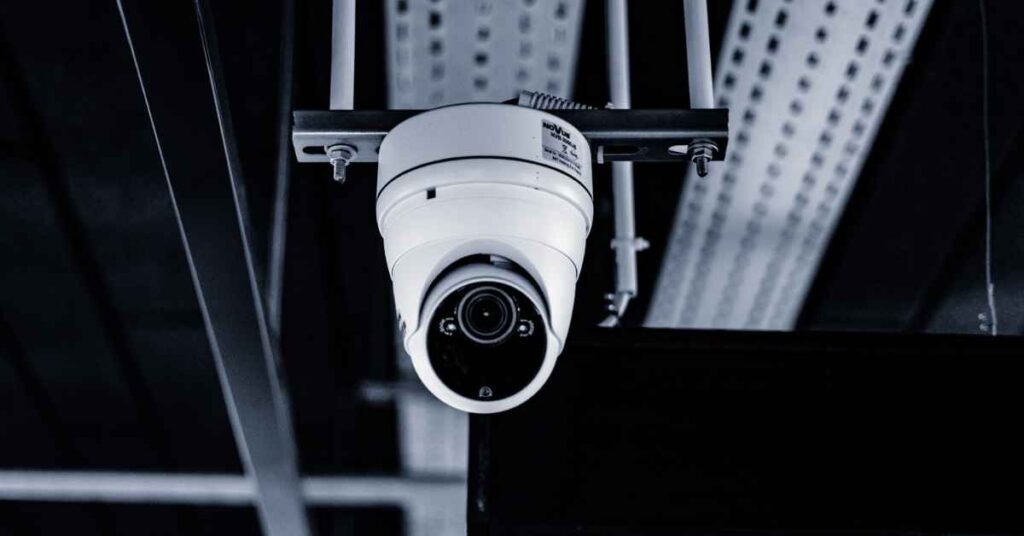Home surveillance systems have become increasingly popular as homeowners seek to enhance the security of their properties. While these systems offer significant benefits in terms of safety and peace of mind, they also raise important ethical considerations. This article explores the ethical implications of using home surveillance systems & cctv camera installation, addressing the balance between security and privacy, consent, and the potential for misuse.
Privacy Concerns
One of the most pressing ethical issues surrounding home surveillance systems is the potential infringement on privacy. Cameras placed inside and outside homes can capture sensitive and personal moments, raising concerns about the extent to which individuals’ private lives are being monitored. This is particularly relevant in areas like living rooms, bedrooms, and other intimate spaces where privacy is highly valued.
Additionally, the presence of surveillance cameras can affect not just the homeowner, but also visitors and neighbors. For instance, outdoor cameras may inadvertently record activities in neighboring properties, leading to disputes and privacy violations. Balancing the need for security with respect for privacy is crucial to addressing these ethical concerns. Homeowners should carefully consider the placement of cameras and ensure that their surveillance practices do not infringe on the privacy of others.
Informed Consent
Informed consent is another critical ethical consideration in the use of home surveillance systems. Everyone who lives in or visits the home should be aware that they are being recorded. This is especially important in shared living arrangements, such as rental properties, where tenants may not have full control over the surveillance system.
Moreover, it is essential to inform service providers, guests, and other visitors about the presence of cameras. Failure to obtain consent or inform individuals about surveillance can lead to feelings of distrust and discomfort. Ethical use of home surveillance systems requires transparency and respect for the autonomy of those who are being recorded. Clear communication about the existence and purpose of the cameras helps maintain trust and mutual respect.
Data Security and Ownership
The ethical management of data security and ownership is paramount in the use of home surveillance systems. These systems often record and store vast amounts of footage, which can be vulnerable to hacking, unauthorized access, and misuse. Ensuring that this data is securely stored and protected is a fundamental ethical responsibility of homeowners and surveillance companies.
Additionally, questions arise regarding who owns the data captured by home surveillance cameras. Homeowners typically assume ownership of the footage, but cloud-based storage solutions offered by surveillance companies can complicate this issue. Ethical considerations include ensuring that homeowners have full control over their data and are aware of how it is being stored and used by third-party providers. Clear policies and practices around data security and ownership are essential for maintaining trust and protecting individuals’ privacy.
Potential for Misuse
The potential for misuse of home surveillance systems is a significant ethical concern. While these systems are designed to enhance security, they can be used for less benign purposes. For example, surveillance footage can be used to monitor and control the behavior of others in the household, leading to issues of power imbalance and coercion.
Furthermore, there have been instances where surveillance footage has been used for blackmail, harassment, or other malicious activities. Ensuring that these systems are used responsibly and ethically is crucial to preventing such abuses. Homeowners should establish clear guidelines for the use of surveillance footage and ensure that it is not misused in ways that violate the rights and dignity of others.
Impact on Social Behavior
The presence of surveillance cameras can significantly impact social behavior, raising ethical questions about the effects on individuals’ autonomy and freedom. Knowing that they are being recorded can lead people to alter their behavior, which may inhibit natural and spontaneous actions. This phenomenon, known as the “chilling effect,” can have profound implications for personal freedom and social interactions.
Moreover, constant surveillance can create an atmosphere of suspicion and mistrust, affecting relationships within the household and the broader community. Balancing the need for security with the need to maintain a trusting and open social environment is an important ethical consideration. Homeowners should be mindful of how their surveillance practices impact the behavior and well-being of those around them.
Legal and Regulatory Compliance
Ensuring legal and regulatory compliance is a key ethical consideration for the use of home surveillance systems. Different jurisdictions have varying laws and regulations regarding the use of surveillance cameras, including requirements for notification, consent, and data protection. Ethical use of these systems requires adherence to all applicable laws and regulations to avoid legal repercussions and protect individuals’ rights.
Additionally, homeowners should stay informed about changes in surveillance laws and ensure that their practices remain compliant. This includes understanding the implications of recording audio, the legal requirements for signage, and the rights of individuals captured on camera. By maintaining compliance with legal and regulatory standards, homeowners can ensure that their use of surveillance systems is ethical and responsible.
Balancing Security and Ethical Considerations
Striking a balance between security and ethical considerations is essential for the responsible use of home surveillance systems. While the primary goal of these systems is to enhance security, it is important to ensure that this does not come at the expense of privacy, autonomy, and ethical integrity. Homeowners should consider the broader implications of their surveillance practices and strive to find a balance that respects the rights and dignity of all individuals affected.
Furthermore, adopting best practices for ethical surveillance can help mitigate potential negative impacts. This includes minimizing the use of surveillance to what is strictly necessary, regularly reviewing and updating security practices, and fostering open communication about the presence and purpose of cameras. By approaching home surveillance with a strong ethical framework, homeowners can achieve their security goals while maintaining respect for privacy and individual rights.
The ethical implications of using home surveillance systems are complex and multifaceted. By considering issues of privacy, consent, data security, potential misuse, social behavior, and legal compliance, homeowners can ensure that their use of these systems is both effective and responsible. Balancing the need for security with ethical considerations is crucial for maintaining trust, respect, and the well-being of all individuals involved.


